
THE ENVELOPE ARRIVED at the San Francisco Chronicle in November 1969 without a return address, its directive to the recipient, in handwriting distinctively slanted and words unevenly spaced, to “please rush to editor.” The Chronicle newsroom had seen the scrawl before, on previous letters sent from the Zodiac, a self-monikered serial killer who threatened to go on a “kill rampage” if the paper didn’t publish his writing on its front page. By the time of the November letter, the Zodiac had already attacked seven people, murdering five. His most recent murder—of a San Francisco cab driver, by gunshot—had occurred just four weeks before this new envelope arrived. The Zodiac had mailed the Chronicle a piece of the victim’s bloodied shirt as evidence of the crime.
The Zodiac’s letters were replete with grisly imagery. He signed his “name” with a crosshairs symbol. He shared haunting details of his attacks. He promised to blow up buses of schoolchildren and unleash a “death machine” on San Francisco. But in addition to these overt threats, he included baffling ciphers for investigators to crack, troubling grids of symbols and letters that presumably masked a secret about his identity, intentions, or victims (to this day, the killer has never been found). The Zodiac’s first cipher, included in the July 31 letter, had been solved within a week by an amateur husband-and-wife team—but it had only revealed more of the killer’s raving. The second, now known as “the 340” due to the number of characters in it, would prove a much more difficult challenge. It came with a letter for the Chronicle, reading in part:
This story is from the March - April 2024 edition of Popular Mechanics US.
Start your 7-day Magzter GOLD free trial to access thousands of curated premium stories, and 9,000+ magazines and newspapers.
Already a subscriber ? Sign In
This story is from the March - April 2024 edition of Popular Mechanics US.
Start your 7-day Magzter GOLD free trial to access thousands of curated premium stories, and 9,000+ magazines and newspapers.
Already a subscriber? Sign In
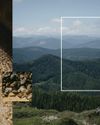
ONE OF THE 'GREATEST THREATS' TO THE PACIFIC NORTHWEST ISN'T WHAT YOU THINK.
EXPERTS ARE PREPARING THE REGION AGAINST THE THREAT OF DANGEROUS VOLCANIC MUDFLOWS, KNOWN AS LAHARS, WHICH COULD INUNDATE THE COMMUNITIES SURROUNDING MT. RAINIER IN AS LITTLE AS 30 MINUTES.

THE WORLD'S TOUGHEST ROW
They rowed 3,000 miles across the Atlantic, battling unpredictable weather, chaotic seas, and finicky equipment. But what they discovered gave them profound new insights into the power of the ocean.
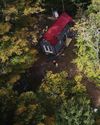
HOW TO DIY OFF-GRID SOLAR
SPEND THE TIME UP FRONT AND PLAN IT CAREFULLY TO AVOID DISAPPOINTMENT

Are We on the Verge of an ARMS RACE in SPACE?
RUMORS OF A RUSSIAN SPACE NUKE, ALONG WITH OTHER SATELLITE-TARGETING WEAPONS, HAVE MADE GEOPOLITICAL TENSIONS EXTEND INTO ORBIT.

Fresh Fingerprints on an Ancient Statue
A CLAY FIGURINE HAS SPENT MILLENNIA incomplete, waiting at the bottom of a lake for its long-dead craftsman to finish the Iron Age-era statuette.

Quantum Entanglement in Our Brains
IT HAS LONG BEEN ARGUED THAT THE human brain is similar to a computer. But in reality, that's selling the brain pretty short.

The Tools of Copernicus
WAY BACK IN 1508, WITH ONLY LIMited tools at his disposal, Nicolaus Copernicus developed a celestial model of a heliocentric planetary system, which he described in hist landmark work De revolutionibus orbium coelestium. It was a complete overhaul of our conception of the universe-one that, unfortunately, earned him the ire of the Catholic church for decades after his death-and forever changed the way we look at the stars.
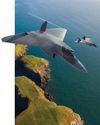
Building a Sixth-Generation Bomber Raptor
THE GLOBAL COMBAT AIR Programme (GCAP)-a project by the U.K., Italy, and Japan to develop a sixth-generation stealth fighter-has been busy at the drawing board reshaping its vision of the future of air warfare. And judging by the new concept model unveiled at this year's Farnborough air show, that future has big triangular wings.
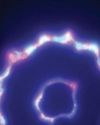
The Electroweak Force of the Early Universe
TODAY, THE UNIVERSE AS WE KNOW IT IS governed by four fundamental forces: the strong nuclear force, the weak nuclear force, electromagnetism, and gravity.
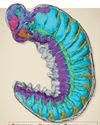
This Ancient Fossil With a Brain and Guts
WE KNOW WHAT FOSSILS LOOK like. For example, typical dinosaur fossils are bones turned to stone and preserved from the passage of time, located, if we're particularly lucky, in large collections that can be reassembled to represent the beast they used to prop up in their entirety.